This Fort Wayne gallery supports BIPOC artists & brings international talent to town
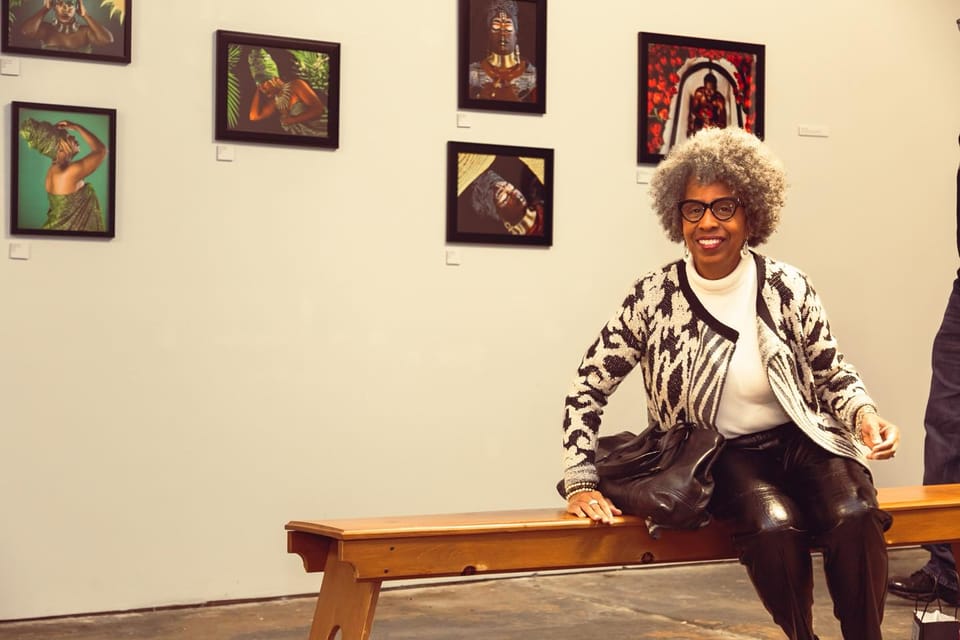
Did you know internationally recognized graffiti artist Kool Koor has come to Fort Wayne to inspire and work with local artists — not once, but twice since 2022?
For those who aren’t familiar, Kool Koor is “one of the most influential and pivotal urban artists of the original NYC urban scene,” so having him here to meet and collaborate with locals is no small feat.
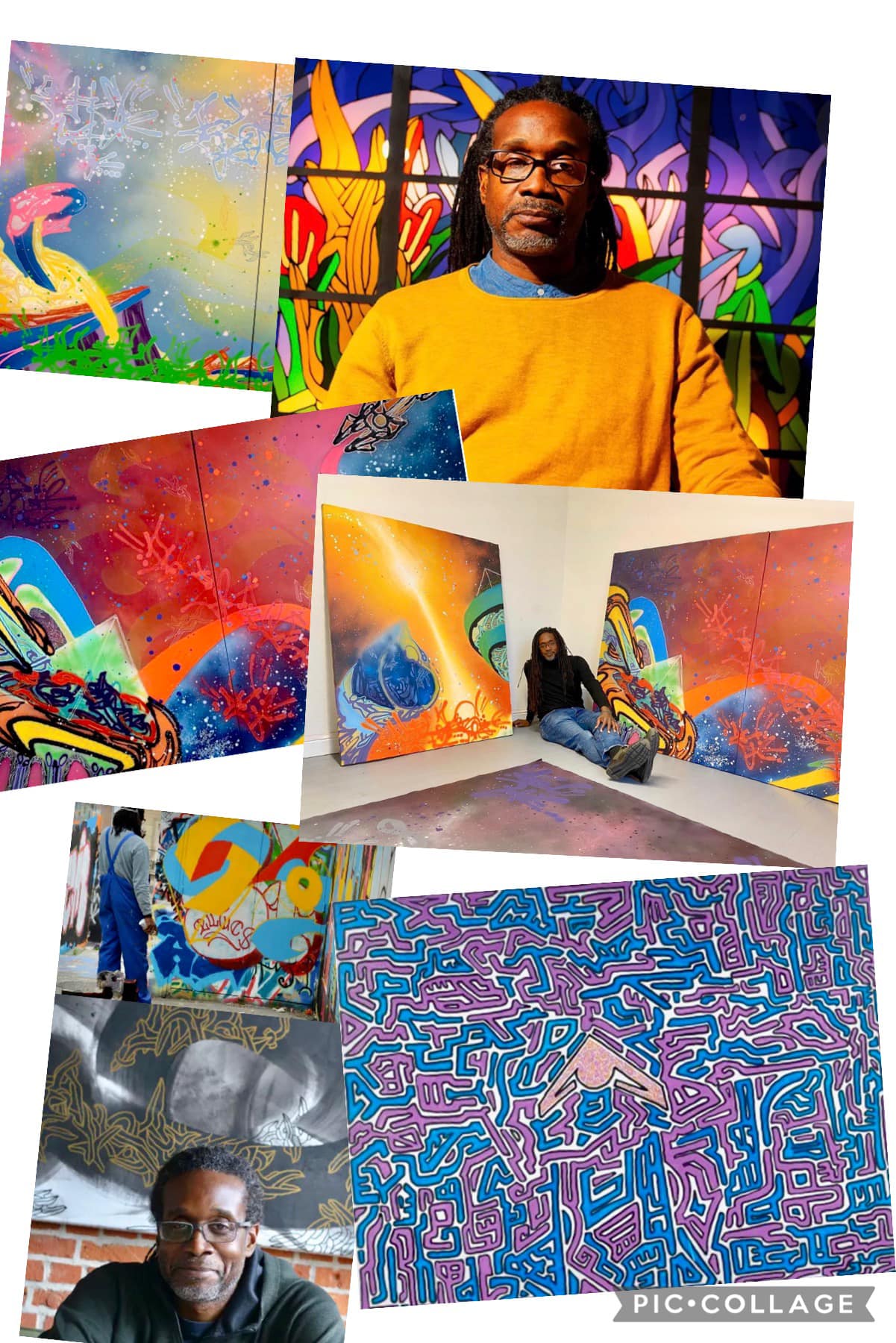
This — and other powerful opportunities for Fort Wayne artists — has come to fruition thanks to work of local Gallery Curator and Founder Clydia Early.
As a longtime buyer and collector of art, Early launched BIPOCA Incubator and Art Gallery in 2022 at Wunderkammer Company to address critical gaps she’s seen in the art world — both locally and nationally. Namely: There’s a lack of trust between BIPOC creatives and galleries selling their work, as well as a lack of opportunities for artists to show or sell their art to predominantly white buyers.
Now, Early feels the tides are turning in Fort Wayne and beyond as more People of Color are finding ways to produce (and sell) work that speaks to them — regardless of what’s considered “safe to create.”
We sat down with Early to learn more about BIPOCA’s work in Fort Wayne and the talent she’s bringing to town in 2024.
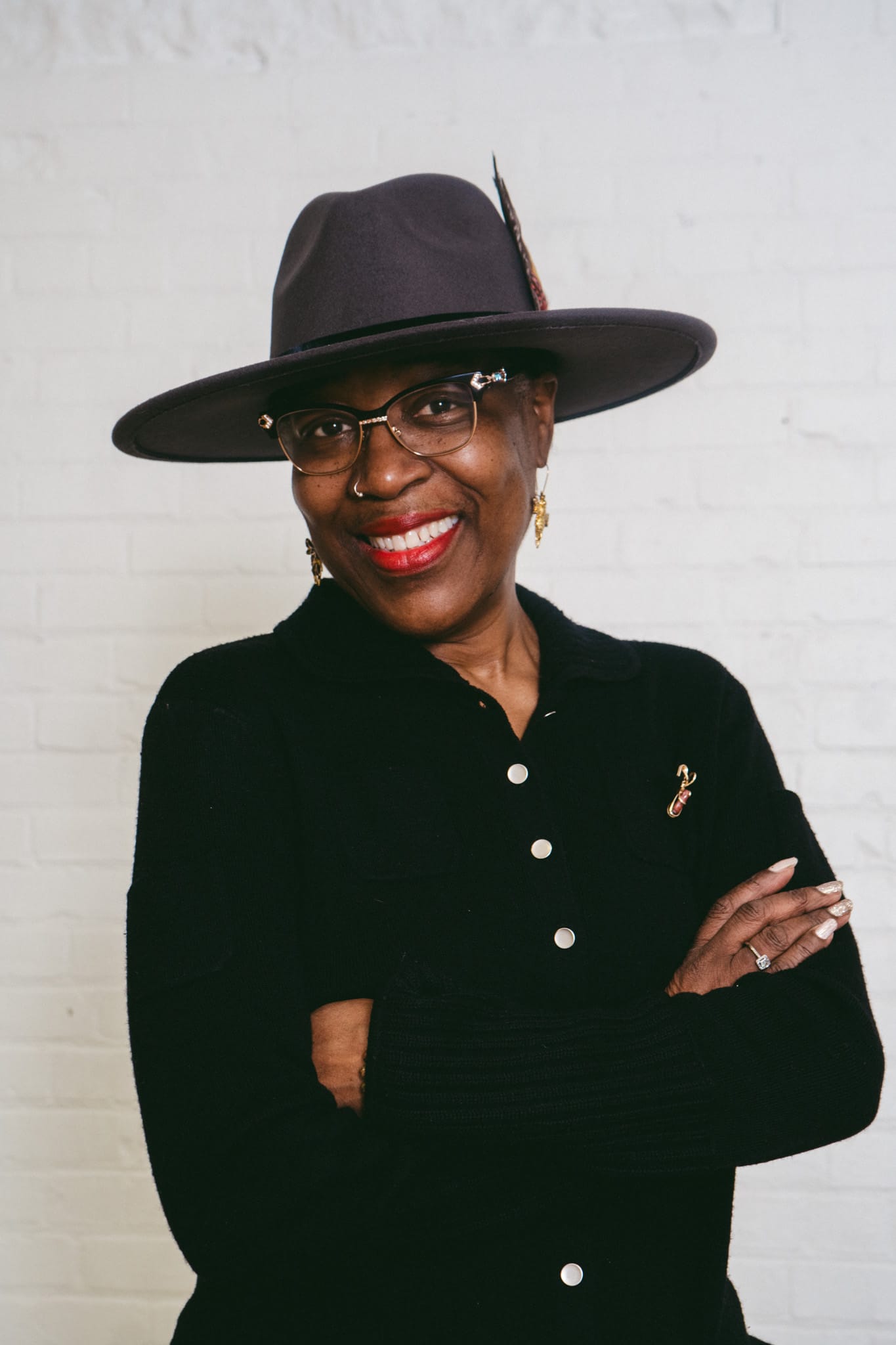
Tell us a little bit about yourself. How long have you lived in Fort Wayne, and what have you done before opening BIPOCA?
CE: I have lived in Fort Wayne for the last 35 years. I moved away after high school and attended college at San Jose State University in California and lived there for a bit. Moved back to Fort Wayne in the late 80’s and began working in the nonprofit sector, running a childcare center and then a homeless shelter for women and children for many years. Always in the background buying and collecting art.
What inspired you to start BIPOCA, and how did it come about?
CE: I was inspired to start BIPOCA, out my love of art. I started buying and collecting art, probably in the early 90’s. I didn’t even really know what I was doing, just buying pieces that I liked from places and people who sold art. After having the opportunity to work with the Ft. Wayne Museum of Art over a few years on art events geared to the BIPOC community, it was brought to my attention the lack of spaces and place available for artist and creatives of color to be represented, included, seen and heard in our community on a consistent basis. I’ve always been community-oriented and wanted to open a gallery for People of Color. So after talking with family and friends about the need, finally, I took a leap of faith, and in the summer of 2022, a year right out of COVID-19, I started BIPOCA Incubator and Gallery.
How would you describe BIPOCA to someone unfamiliar with it?
CE: BIPOCA is a space and place focused on uplifting and promoting Black, Indigenous and People of Color whose artistic/creative work has been historically excluded, unseen and/or exploited. Here, in our local community, and from wherever else they may come across my path in another city, state or country.
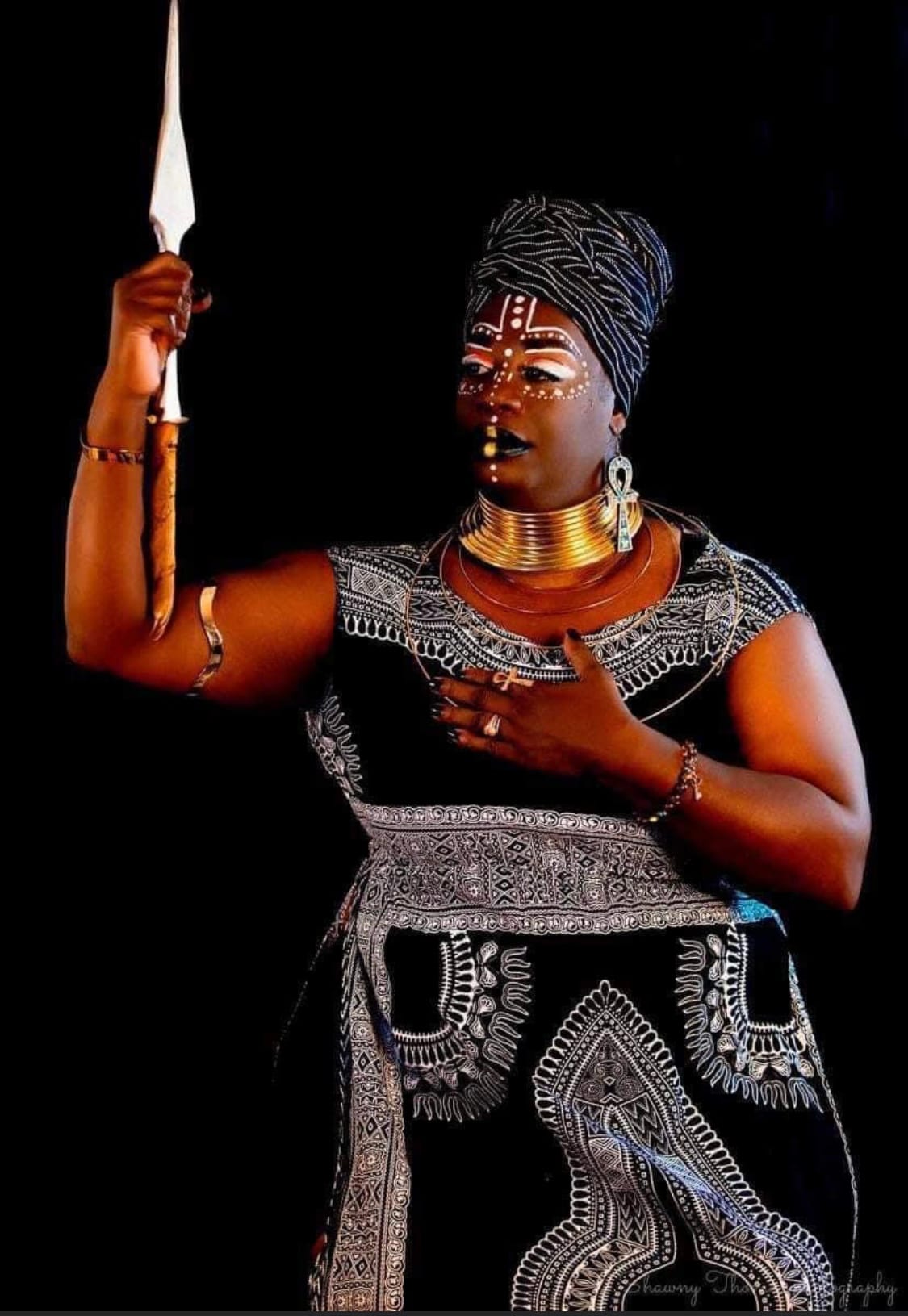
How has BIPOCA grown and evolved since you launched?
CE: When BIPOCA first started we were chasing artists, attempting to convince them to work with us. It was an uphill process because so many BIPOC artists didn’t trust galleries — even if they couldn’t sell their work. I think it was because they felt galleries took so much of the profits from the sales, and they needed their money. So I felt like I had to prove myself to those artists; I still do sometimes after being true to our mission and working hard to create a space for artists to exhibit, sell and perform their work, while also uplifting and engaging them to reach higher. BIPOCA has increased the number of artist we are working with in 2024 from five to 12 for our first quarter. I am deeply honored for the artists’ trust.
Tell us more about the “incubator” side of BIPOCA’s work, for those unfamiliar.
CE: The incubator part of BIPOCA is where we work with each artist to support their growth in every possible way. We offer personal development workshops tailored to empower them to reach new heights in their creative endeavors. We help them craft an artistic plan that will amplify their unique talents and aspirations, helping them to move forward on their artistic journey. We also offer artist pop-ups, workshops, classes, Meet the Artist events and other opportunities to connect artists with collectors, businesses and others who might be interested in their work.
Tell us more about some of the challenges Black creatives (specifically) have faced throughout history and what opportunities you see Black creatives building in the art world.
CE: Black creatives have always faced challenges in the art world — many times not being recognized for their work and denied, or having limited access to resources to help them achieve the success of which they are capable. They have also faced the pressures of feeling like they had to produce certain types of artwork that would resonate with white audiences who were the main purchasers historically. Art that was “safe to create.” I now see Black artists being true to who they are and what they choose to produce as works of art, and not necessarily conforming to what they think will sell. This past year 2023 at Art Basel Miami, which is part of a huge international art fair, there was BIPOC art in every space — something we had never seen on that level before. You can also just look online and see the branding deals and collaborations companies are doing with Black creatives. The opportunities for Black creatives in the the art world right now are vast, in my opinion.
What are some of the challenges and opportunities you see for People of Color in Fort Wayne’s creative scene today?
CE: One of the challenges I see for BIPOC artist here in our community would be recognition. What I mean is that it seems only a couple of BIPOC artists here are recognized, and those specific artists are chosen for most of the artist opportunities that arise when a BIPOC artist needs to be picked to do the job. I would also say one of the challenges is about BIPOC artists feeling intimidated about who to talk with to get their art seen, shown or produced as a large work here in this city.
I do see opportunities also. Electric Works has featured and showcased several BIPOC artists and their work since opening. The City of Fort Wayne’s “Faces of the Fort” mural project has used different BIOOC artists to create the faces of different community members who have impacted our city. We have a performing arts community that is crossing all boundaries with casts that are primarily all BIPOC. This month, The Color Purple will be presented by the Fort Wayne Civic Theater, and I am excited to see it.
What would take Fort Wayne’s creative scene to the next level?
CE: I would say more support for creative spaces for BIPOC artists to collaborate and interact with each other and other artists. Also a collaboration of all the artistic spaces and places in the city coming together once a year to support each other with an event — not just keep secluded to the Downtown area.
You’ve brought some amazing national artists to Fort Wayne since opening BIPOCA. Tell us more about some of the national talent you’ve hosted so far and any visiting artists on the schedule for this coming year.
CE: Well BIPOCA brought International Graffiti artist Kool Koor to Ft. Wayne first in 2022 with part of a grant from the Fort Wayne Community Foundation. He came back again in 2023 and completed a two-week residency with the University of St. Francis. We are working on organizing a six- to eight- week Midwest College tour this fall with Mwandale Mwanyekwa, one of Tanzania’s most well-known and internationally recognized sculptors. Then, in the winter, we are planning to bring renowned sculptor, Diane Schenandoah of the Wolf Clan-Oneida Nation, for an artist talk and show of some of her work. I’ve been speaking to both of them since last year, so I am excited about the possibilities.
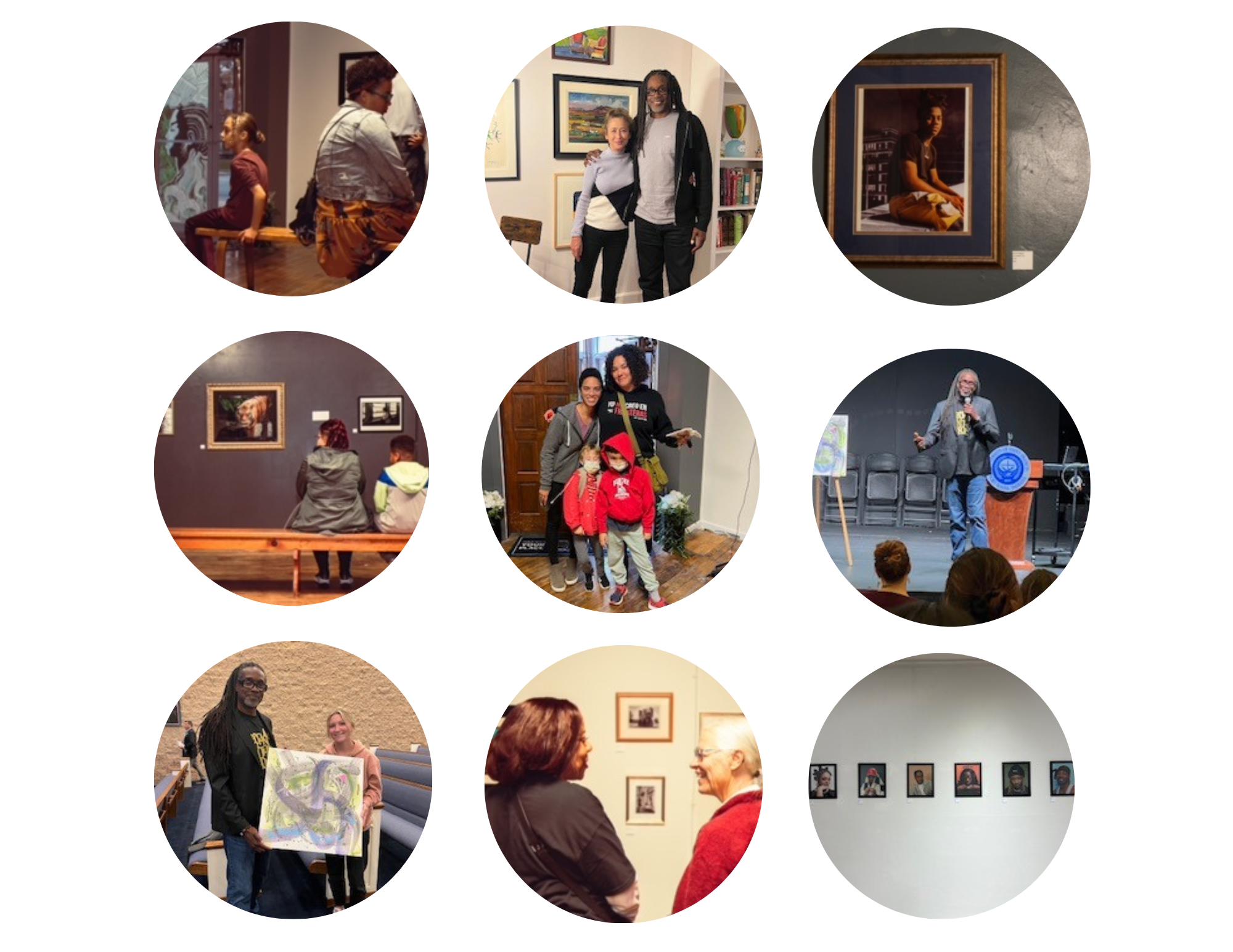
Who are a few local artists/creatives you see doing great things in Fort Wayne’s art scene?
CE: Some of local BIPOC artists I see doing great things in Fort Wayne are Lyndy Bazile of AfroPlump, definitely Theoplis Smith of Phresh Laundry, animator Ron Lewis, photographer/podcast host Kelsey Martin, creative Mark Braster and so many more.
Any pro tips for people visiting Fort Wayne to experience BIPOCA’s gallery or events?
CE: I would say, if you are visiting Fort Wayne for the first time, be sure to stop at the Visitor’s Center Downtown. They have a lot of information about many of the seasonal activities and different events going on in the city. Also, be sure to look up some galleries to check out the fantastic art work we have to offer in this city. For sure BIPOCA! Currently you can find BIPOCA on Instagram @bipocaincubatorgallery and on Facebook. We also have a new website come out in the next couple of months, so please look for out for it.
What’s next for BIPOCA in 2024?
CE: In 2024, BIPOCA has a lot going on. This month, we are having a Cultural Kids Paint-n-Sip in celebration of Black History Month, on Sunday 2/25 from 1-3:30 p.m. On Friday 2/23, from 7-9 p.m., we are have our first Meet the Artist of 2024 with old and new artists working with BIPOCA. We also have some art trips scheduled, creative workshops for the community and workshops for artists, community collaborations and a whole lot more that we are going to try to make happen.
Anything we didn’t ask that you’d like to share?
CE: BIPOCA currently has a Gofundme campaign taking place to raise funds for our space rental costs, artist/creatives incubation and artist exhibitions. We would love it if you supported our efforts, or even just share it with your network. It’s BIPOCA: Give to Art on gofundme.com!
Visit BIPOCA
BIPOCA Incubator and Gallery is open Saturdays and Sundays noon to 4 p.m. at 3402 Fairfield Ave.
